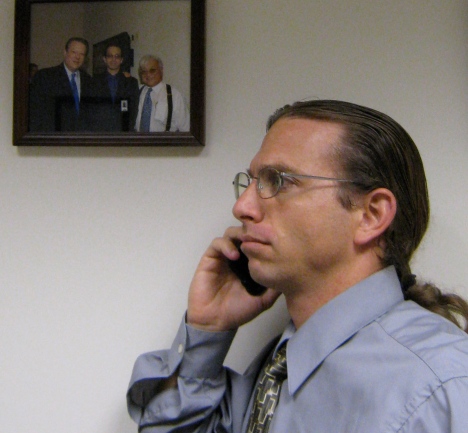Blog Post at Luke Laurie’s Teacher Blog: https://lukelaurie.wordpress.com/
The following was delivered as my opening remarks during the STEM education Policy Panel during the Einstein Fellowship 20th Anniversary Summit, which occured at the Woodrow Wilson Center for International Scholars on June 27 and 28, 2010.
While I believe in the importance of STEM at all levels, I believe we should focus our policies on improving STEM education at the elementary school level.
We need high quality science education in every elementary school, in every elementary classroom, for every child, regardless of language ability, disability, or income. There is no policy that will have as significant or far reaching effects as one that would ensure that all students have a strong foundation of hands-on science and technical experiences, practice with logical and critical thinking skills, and a knowledge base of facts about the world around them.
The fact of the matter is, that the K-6 STEM education pipeline is like the natural gas pipeline Sarah Palin brags about. It doesn’t exist. There are places where great science instruction is occurring for young students. These places are exceptions. We need a rule. We have been putting some modest resources into Math achievement in elementary schools, or at least test score improvement, but science, technology, and pre-engineering lessons have largely gone the way of the dinosaur, the Pontiac, and safe offshore drilling.
We will not be successful if we just impose science curriculum or science standards and testing on elementary schools without considering the workforce that would implement it, our elementary teachers; and the resources they have available for STEM, which, by and large, do not exist.
Our elementary teachers, for whom I have great respect, are, on a whole, unprepared and lack sufficient resources to effectively teach science. Those that do have the skill and ambition to teach it often must do so in spite of administrative directives. The increased emphasis on Mathematics and Language Arts has greatly limited the time teachers have to devote to science, not to mention art, music, physical education and other subjects.
Thus, an effective policy would need to train current elementary teachers, improve teacher preparation programs in STEM, provide specialists to coach and teach science in elementary schools, would mandate that comprehensive STEM instruction would occur and that sufficient time would be devoted to it, and would also provide the financial resources to bring science materials and labs to every school.
My experience working in the House of Representatives with Congressman Mike Honda enlightened me to some jurisdictional issues that can act as impediments to improving STEM education. Perhaps other panelists can enlighten me as to how these issues have evolved in the 3 years since my Fellowship and the beginning of the Obama Administration.
The problem goes like this: I was working on legislative concepts that would best be described as fitting the topic: Science Education, not unlike the policies I just described.
When I discussed these concepts with staff on the Education and Labor Committee, or other knowledgeable professionals, I was told that Science Education was the jurisdiction Science Committee. Indeed, when I looked through the budget for the Department of Education, the only program I found related to science was the Math and Science Partnerships, which certainly don’t impact all schools for what I had in mind, and usually did not impact elementary schools. Also, if you searched the Department of Education website at that time you would find no resources related to science, only links to outside organizations.
Taking these legislative ideas over to the science committee produced similar results. “Oh, you want to do something with K-12, well that’s the Education Committee.” “But this is Science education.” “Oh, well can we turn this into a grant from NSF?”
It seems that the standard path for impacting K-12 STEM education from the Federal level is to create grant programs and other outreach programs that are administered through colleges and universities, and indirectly impact a small number of students in K-12. The vast majority of elementary students are not impacted by such programs.
This is an issue of national significance. We can’t rely on piecemeal grants, small scale experiments, inconsistent industry partnerships, charter schools, or blind faith to ensure that STEM education will happen everywhere in the United States. We need a bold, clear, national policy that will make it happen.
Filed under: Education, Policy, Science | Tagged: committee, Department of Education, Education and Labor, elementary, ESEA, jurisdiction, k-12, K-6, learning, legislation, mike honda, nclb, pre-engineering, resources, Science, science equipment, science specialists, standards, STEM, teaching, technical experiences, time | Leave a comment »



